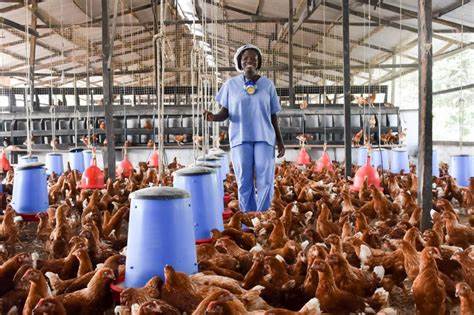The Food and Agricultural Organisation (FAO) is advising farmers to desist from using antibiotics to boost egg production.
The National Project Coordinator for Antimicrobial Resistance at FAO, Kofi Afakye, says the practice causes what is known as antimicrobial resistance (AMR), where germs become resistant to antibiotics.
He says this makes treatment of diseases difficult and costly.
“More farmers use antibiotics as prophylaxis for egg boosting and for growth promotion, which shouldn’t be the case. When they don’t make the appropriate use of these antimicrobials, there’s development of antimicrobial resistance,” he said. “When we get sick then our sickness becomes very difficult to treat”.
Antimicrobial resistance occurs when bacteria, fungi, viruses, and parasites change and become resistant to antimicrobial drugs like antibiotics to which they were originally susceptible.
Factors such as the misuse or overuse of antimicrobials in animals and humans and exposure to falsified drugs all contribute to AMR.
Withdrawal period
This is the time allowed for remnants of the antibiotics to drain out of the animal before it is consumed.
Depending on the particular antibiotics, farmers have been advised to wait for the antibiotics to drain out before selling their animals.
However, studies suggest 98 percent of farmers in Ghana are not observing the withdrawal period.
“When we give these antibiotics to these animals, we should wait for this period to elapse before we slaughter the animals for food or use the products from the animals as food,” Dr. Afakye advises.
In the situation where farmers defy this practice, there are likely traces of these antimicrobials within the animal’s system or the products.
This means that humans who consume these foods are indirectly consuming these antibiotics which can result in Antimicrobial Resistance.
Dr Afakye was speaking at a training of media practitioners on Antimicrobial resistance in Kumasi.
The workshop is part of the implementation of the National Action Plan on Antimicrobial Resistance Policy.
The FAO is collaborating with its one-health partners, to implement the National AMR Action Plan (NAP) which was launched in 2018 to fight AMR using a multi-sectoral approach.
The Ghana National Action Plan (NAP) was developed based on the model recommended in the Global Action Plan.
Collaborators have been collecting local data on on-going interventions.
The AMR policy document has been used to analyse the data.
Latest Stories
-
Paris 2024: Opening ceremony showcases grandiose celebration of French culture and diversity
3 hours -
How decline of Indian vultures led to 500,000 human deaths
4 hours -
Paris 2024: Ghana rocks ‘fabulous fugu’ at olympics opening ceremony
4 hours -
Trust Hospital faces financial strain with rising debt levels – Auditor-General’s report
5 hours -
Electrochem lease: Allocate portions of land to Songor people – Resident demand
5 hours -
82 widows receive financial aid from Chayil Foundation
5 hours -
The silent struggles: Female journalists grapple with Ghana’s high cost of living
5 hours -
BoG yet to make any payment to Service Ghana Auto Group
5 hours -
‘Crushed Young’: The Multimedia Group, JL Properties surprise accident victim’s family with fully-furnished apartment
6 hours -
Asante Kotoko needs structure that would outlive any administration – Opoku Nti
6 hours -
JoyNews exposé on Customs officials demanding bribes airs on July 29
7 hours -
JoyNews Impact Maker Awardee ships first consignment of honey from Kwahu Afram Plains
8 hours -
Joint committee under fire over report on salt mining lease granted Electrochem
8 hours -
Life Lounge with Edem Knight-Tay: Don’t be beaten the third time
8 hours -
Pro-NPP group launched to help ‘Break the 8’
8 hours

